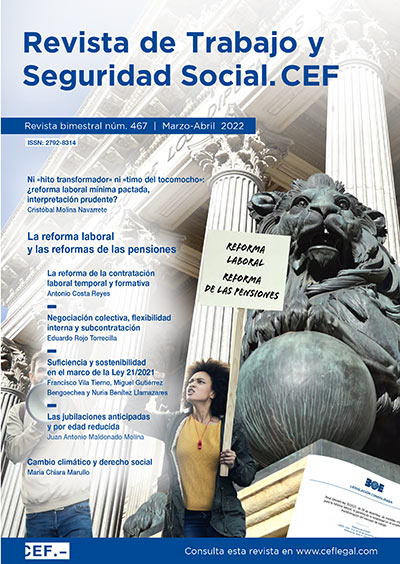Hazard pay, assessment of dependent and mentally-ill people in their homes and gender perspective
Commentary on the Ruling of the High Court of Justice of the Canary Islands/Las Palmas 975/2021, of 22 October
DOI:
https://doi.org/10.51302/rtss.2022.4049Keywords:
gender pay gap, hazard pay, gender perspective, home assessment, dependency and disability, dangerousness bonus, special voteAbstract
The High Court of Justice of the Canary Islands (Las Palmas) denies to the staff of the Dependency Assessment and Guidance Service of the autonomous community of the Canary Islands the right to receive the bonus for danger, hardship and toxicity regulated in the collective agreement, understanding that the existence of potentially dangerous situations or exceptionally dangerous circumstances in home visits for the assessment of the elderly, mentally handicapped and/or dependent persons has not been accredited. Accomplishing an integration of the gender perspective due to the feminization of the group, judge Glòria Poyatos i Matas issued a dissenting opinion, considering that the duties of home visits and interviews for the assessment of elderly, mentally ill or dependent people inevitably place the workers in a dangerous situation.



















